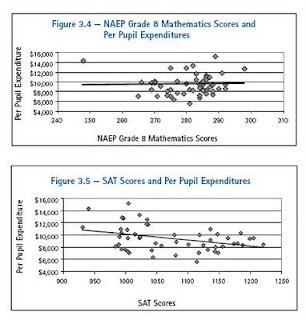Putting the Corrupt University System Out of Our Misery
In fifty years, if not much sooner, half of the roughly 4,500 colleges and universities now operating in the United States will have ceased to exist. The technology driving this change is already at work, and nothing can stop it. The future looks like this: Access to college-level education will be free for everyone; the residential college campus will become largely obsolete; tens of thousands of professors will lose their jobs; the bachelor’s degree will become increasingly irrelevant; and ten years from now Harvard will enroll ten million students.Modern universities are memorials to mediocre education, corrupt excess, and academic intolerance. The $1 trillion in student loans which hobble young people at the start of their adult lives is being revealed as a dangerous financial bubble. The university system now occupies a central part of the ongoing US financial misery -- and heaven help the US taxpayer if Obama includes universities in his next round of multi- $trillion bailouts.
... universities that have spent the past few decades spending tens or even hundreds of millions to offer students the Disneyland for Geeks experience are going to find themselves in real trouble. Along with luxury dorms and dining halls, vast athletic facilities, state of the art game rooms, theaters and student centers have come layers of staff and non-teaching administrators, all of which drives up the cost of the college degree without enhancing student learning. The biggest mistake a non-ultra-elite university could make today is to spend lavishly to expand its physical space. Buying large swaths of land and erecting vast new buildings is an investment in the past, not the future.
...The biggest obstacle to the rapid adoption of low-cost, open-source education in America is that many of the stakeholders make a very handsome living off the system as is. In 2009, 36 college presidents made more than $1 million. That’s in the middle of a recession, when most campuses were facing severe budget cuts. This makes them rather conservative when it comes to the politics of higher education, in sharp contrast to their usual leftwing political bias in other areas. Reforming themselves out of business by rushing to provide low- and middle-income students credentials for free via open-source courses must be the last thing on those presidents’ minds.
Nevertheless, competitive online offerings from other schools will eventually force these “non-profit” institutions to embrace the online model, even if the public interest alone won’t. And state governments will put pressure on public institutions to adopt the new open-source model, once politicians become aware of the comparable quality, broad access and low cost it offers. _The End of University as We Know It
The system is corrupt and rotting to the core, and cannot last. It is time to build an affordable, trimmed down replacement system that returns value for money spent. It is time to put the rotten and corrupt university system out of our misery.
Labels: academic intolerance, Academic lobotomy, big money education, University















